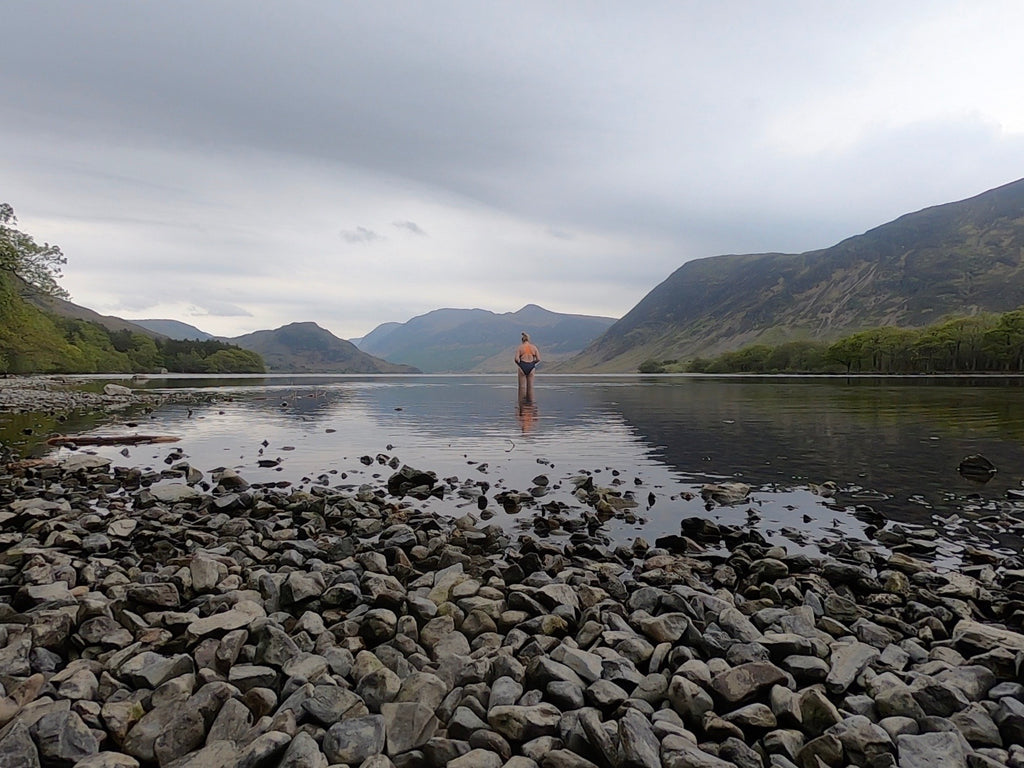Crummock, Buttermere, Wastwater - The last three pristine lakes in England #spreadthewordnottheweed
Posted on Monday, June 15 2020 03:20:01 PM in News by Sara Barnes

#spreadthewordnottheweed

Sara Barnes
Freelance writer who loves swimming in wild and not so wild water.
@bumblebarnes
Check - Clean - Dry
Invasive non-native species of wildlife can hitchhike on bodies, body hair, equipment, footwear, clothing and boats.
You may inadvertently spread the aliens even if you just go for a paddle, every time you leave any water such as a river, tarn or lake!


Everytime you go from one body of water to another
- Check your equipment and clothing for living organisms. Pay particular attention to damp or hard to inspect areas.
- Clean and wash all equipment, footwear and clothes thoroughly. If you do come across any organisms, leave them at the water body where you found them or on a hard surface to die out.
- Dry all equipment and clothing. Some species can live for many days in damp conditions.
If you’re planning a swim/run/swim adventure consider the order in which you travel. Go from the cleanest lakes, rivers and tarns first. For example: DO NOT swim in Derwent Water, then Blackmoss Pot, then Buttermere, followed by Crummock. Even if you wear new swim gear, species such as the highly invasive New Zealand Pygmy Weed may secrete itself about your person, footwear, kayak, paddle board, towfloat etc etc. ALWAYS travel from the cleanest body of water, so in this example it is essential to start in Buttermere, then go to Crummock, then Blackmoss Pot and end up in the dirtiest, which sadly is Derwent Water. There the New Zealand Pygmy Weed has rapidly spread so that it is now considered a real threat to our last few remaining pristine bodies of water. At times Derwent Water is unswimmable. We want to save the last three lakes from the same fate.
Please help by ensuring you take nothing with you between bodies of water, no hitchhikers hiding in your body, hair or clothes!
#spreadthewordnottheweed
Rinse all swimwear and equipment with fresh water and dispose of rinsing water onto the ground NOT down the drain or plughole. Once in the drainage system it will work its way into any body of water it wishes. Spread over flowerbeds or the ground it has less chance of entering our water system.
Swimsuits, once rinsed, can be washed in the washing machine or just hung to dry.
If you are camping rinse all gear in the body of water in which you swam, leaving organisms where they belong. Dry thoroughly before entering another body of water, or use clean, dry swimwear. Use bottled water to rinse your body, particularly in areas hard to spot hitchhikers!

Frog Graham and other similar organised or self organised challenges present a threat to these lakes too - please consider approaching your challenge so that you are swimming in the cleaner lakes first. Stop, think and reflect. Your challenge may cause our pristine lakes to die unless we all take the essential precautions.
Paddle boarders, kayakers, triathletes, swimmers, day trippers, tourists - everyone who enjoys the pristine beauty of these waters - be aware, be vigilant, be considerate, be clean. It takes but a few minutes to follow the rinsing and drying advice.

This biosecurity advice is relevant in other parts of the country, not just the Lake District. It is good practice to clean, rinse and dry clothing and equipment when going from one body of water to another wherever you are to avoid carrying non native species about with you. But, in particularly sensitive regions such as the Lake District, it is critical. And if you are with others always talk to them about what you are doing and why - the more people know about it the better.
#spreadthewordnottheweed
For more info contact: Natural England, National Trust and West Lakes Rivers Trust.


